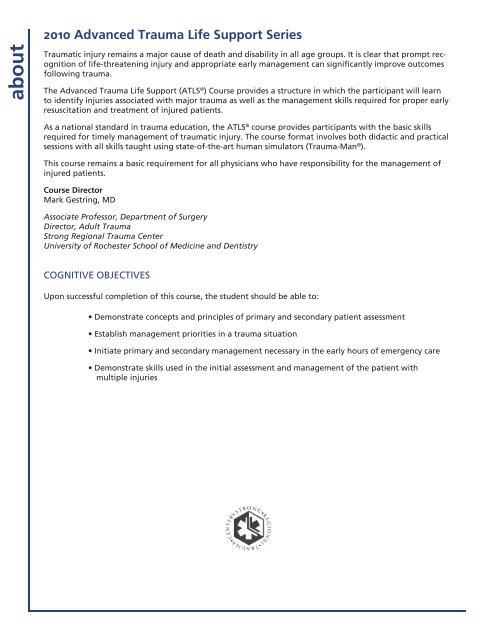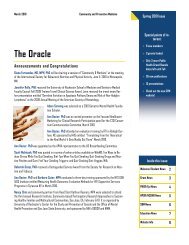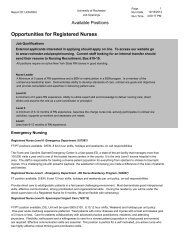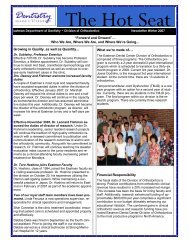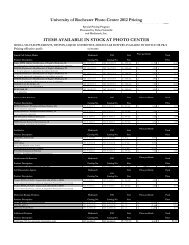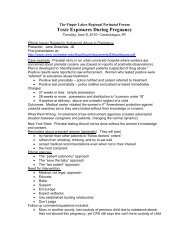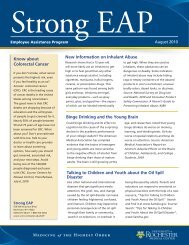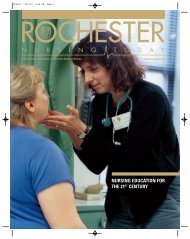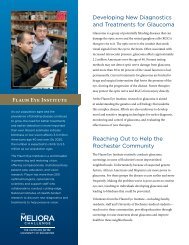Atls - University of Rochester Medical Center
Atls - University of Rochester Medical Center
Atls - University of Rochester Medical Center
You also want an ePaper? Increase the reach of your titles
YUMPU automatically turns print PDFs into web optimized ePapers that Google loves.
2010 Advanced Trauma Life Support Series<br />
about<br />
Traumatic injury remains a major cause <strong>of</strong> death and disability in all age groups. It is clear that prompt recognition<br />
<strong>of</strong> life-threatening injury and appropriate early management can significantly improve outcomes<br />
following trauma.<br />
The Advanced Trauma Life Support (ATLS ® ) Course provides a structure in which the participant will learn<br />
to identify injuries associated with major trauma as well as the management skills required for proper early<br />
resuscitation and treatment <strong>of</strong> injured patients.<br />
As a national standard in trauma education, the ATLS ® course provides participants with the basic skills<br />
required for timely management <strong>of</strong> traumatic injury. The course format involves both didactic and practical<br />
sessions with all skills taught using state-<strong>of</strong>-the-art human simulators (Trauma-Man ® ).<br />
This course remains a basic requirement for all physicians who have responsibility for the management <strong>of</strong><br />
injured patients.<br />
Course Director<br />
Mark Gestring, MD<br />
Associate Pr<strong>of</strong>essor, Department <strong>of</strong> Surgery<br />
Director, Adult Trauma<br />
Strong Regional Trauma <strong>Center</strong><br />
<strong>University</strong> <strong>of</strong> <strong>Rochester</strong> School <strong>of</strong> Medicine and Dentistry<br />
COGNITIVE OBJECTIVES<br />
Upon successful completion <strong>of</strong> this course, the student should be able to:<br />
• Demonstrate concepts and principles <strong>of</strong> primary and secondary patient assessment<br />
• Establish management priorities in a trauma situation<br />
• Initiate primary and secondary management necessary in the early hours <strong>of</strong> emergency care<br />
• Demonstrate skills used in the initial assessment and management <strong>of</strong> the patient with<br />
multiple injuries


